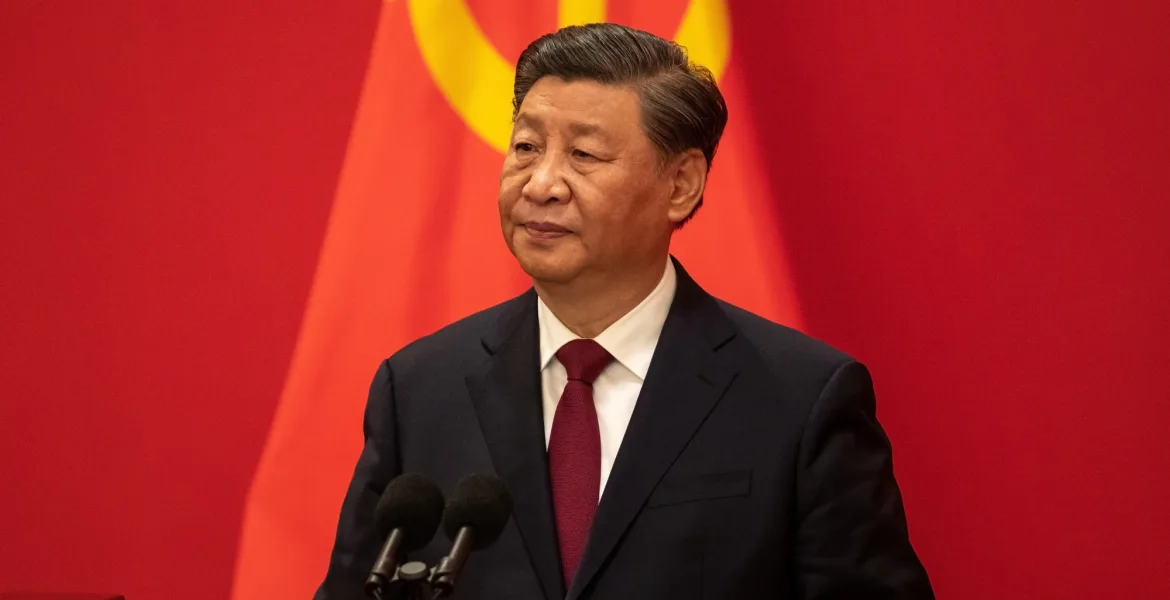It happened a few hours before dawn. It was June 4, 1989, 35 years ago, more than a generation ago. In the dark of night, peaceful demonstrators camped out since April 15 in Tiananmen Square, Beijing, in the heart of the Communist People’s Republic of China, mostly students, were mowed down by People’s Liberation Army tanks. The casualties were an incalculable number: in the sense that the number of the dead that night has never been precisely calculated. Perhaps 10,000. Chinese authorities even deny that anything significant happened that day.
In the rest of the world, Communism was collapsing, vanquished by history. On November 9, the infamous Berlin Wall would finally be torn down—it was the only barrier in history erected by a state, not to prevent external enemies from penetrating within its borders, but to close off all routes of escape to its citizens. The Soviet Union would soon be defunct, its European evil empire too, most of its African and Ibero-American offshoots as well. But not China.
Also in the Chinese squares, as elsewhere in the Communist galaxy that had been bedeviling the world since 1917, people were demanding openings, changes, reforms. What the secretary of the Communist Party of the Soviet Union, Mikhail Gorbachev (1931–2022), was attempting to do was taken as a pretext to demand democracy and freedom, but the Chinese nomenklatura did not fall into the trap. It knew that Communism was irredeemable, that “pick and choose” doesn’t work in the Communist realm, that it was all or nothing.
Tanks getting ready to attack the students in Tiananmen Square on June 4, 1989, photo taken by an American diplomat. Credits.
Tanks getting ready to attack the students in Tiananmen Square on June 4, 1989, photo taken by an American diplomat. Credits.
In Beijing, Deng Xiaoping (1904–1997) was ruling since 1978 and, although he formally resigned in November 1989, in fact will continue to do so until 1992 (dying 5 years later). Deng “the reformist,” “the good guy”… A few analysts split hairs to sort out, in the welter of Chinese disinformation, whether he was really the one who warped the Tiananmen massacre. Goat’s wool. Whatever differences there may have been at the top of the Chinese Communist Party (CCP)-led regime, that decision was made at the highest level, and no one then disavowed it. Certainly not Deng “the good guy.”
The English-speaking Spanish philosopher George Santayana (1863–1952) used to say that “those who cannot remember the past are condemned to repeat it” and the story of Deng “the good guy” at Tiananmen is tragically reminiscent of that of Nikita Khrushchev (1894–1971), the “good” Soviet de-Stalinizer who swept Budapest in 1956 and approved the construction of the Berlin Wall in 1961. Communism is incorrigible, and it has no good guys.
After all, Deng earned his reputation as a “reformer” as easily as Khrushchev. Indeed, it was not too difficult for both men to disentangle themselves from the lucid ideocratic follies of Stalin (Iosif Vissarionovich Dzhugashvili, 1878–1953) and Mao Zedong (1893–1976). In China, the millions upon millions of deaths of the Great Leap Forward (1958–1961) and the Cultural Revolution (1966–1976), pure utopia in power, had produced disaster. Mao even ordered to a country, China, which was virtually only agricultural to surpass the industrial production of Western countries at close quarters. The result was carnage, even cannibalism for the starving Chinese poor, and economic ruin.
The “human surplus” of too many mouths to feed in the post-Mao era prompted the party led by Deng “the good guy” to decree, in 1979, the “one-child policy” to eliminate or not even give birth to as many Chinese as possible, i.e., millions more, and the change of pace towards “to get rich is glorious.” The new motto was attributed to Deng: perhaps it was apocryphal, but it perfectly sums up the spirit of that “financial socialism” which pursues its aims not through class struggle but through the crass materialism of “homo oeconomicus.” All seasoned with the security-for-freedom sophism with which neo-post-Communism has grown over the decades, ending up pleasing Western technocrats in love with mere functionalism and the pied pipers of the World Economic Forum.
Born in the blood of Tiananmen, Deng’s China changed everything to change nothing. Xi Jinping’s rise to power, rooted in both Maoism and the internal opposition to Chairman Mao, testifies to this. Xi has the perfect “physique du rôle.” A little bit of Maoism, a little bit of post-Maoism, and neo-Maoism is served, as irresistible and liberticidal as ever. Always proudly Communist, it knows no democracy, no parties, no elections, no opposition, no free press, no challenge. It lives by the capillary control over its citizens’ every move, repression, physical and cultural genocides to the detriment of ethnic groups and religions. Plus, on the outside, it continues to defraud the markets by violating the rules of trade and exchange. Just think of the labor produced in camps where the new slaves manufacture consumer goods at prices that can fraudulently easily rout the competition.
Gorbachev attempted “perestroika” (a term meaning “transformation”) to revamp Soviet Communism, and that undertaking defeated him. On the other hand, Chinese Communism succeeded in the task, charging the West for its costs. When this idea appeared on the international theater it was a working hypothesis: today it is a certainty. And, for 35 years, the West has continued to trade with the mass murderers of Tiananmen.

